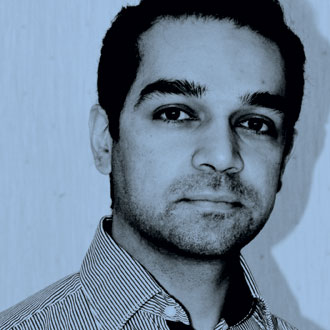
Cambridge is a funny old place. When you walk along the winding, cobbled streets, a significant proportion of the faces you see are associated with the university in some way. From the students and researchers visiting from around the world to the kitchen and porter staff that help run the grand buildings, this vibrant community makes Cambridge a charming place to live and work.
As you might imagine, this population makes for some great experiences in the world of general practice and my training has exposed me to plenty of eccentric and extraordinary individuals.
One such encounter was with an eminent scientist who came to see me about what he described as a ‘rather embarrassing trouser complaint’.
I remember looking nervously through his records before calling him in. It was very early in my training and I was apprehensive about whether I’d have the necessary authority to manage a consultation with such a distinguished academic. Almost resigned to having to knock on my trainer’s door for help, I called the patient through.
It was clear he was not used to being a patient and would much rather have been back in his lab than sitting in front of a bushy-tailed junior doctor. His irritability became more understandable when he explained he was attending because of a genital rash. It transpired he’d tried a host of different treatments, conventional and alternative, containing all sorts of ingredient combinations (except anything with an antifungal agent).
Other writing competition entries
(Winner) Dr Nishma Manek: ‘Let me show you something, doctor’
(2nd place) Dr Ellie Cannon: ‘Why hold back the tears?’
(3rd place) Dr Roger Henderson: ‘A presumptive diagnosis’
Examination, unsurprisingly, revealed the classic red and scaly appearance of thrush. I wouldn’t need my trainer after all.
Thrush is boringly common and despite my inexperience, even I’d seen it a number of times by then. Yet, somehow, this consultation taught me a great deal.
As I explained the diagnosis and management in the least patronising way I could manage, I couldn’t help but feel enormously satisfied with my career choice. I was amazed (and still am) at how the GP consultation changes everything.
There couldn’t have been be a starker contrast between us. He was in his 60s, commanding and a revered expert in his field. I was in my 20s, nervy and woefully inexperienced. Yet I managed to win his confidence and help him through an intimate and distressing problem.
The case also highlighted how effective general practice is at applying a magic dose of common sense.
In his brilliant mind, this patient had considered numerous hypotheses and tried an array of solutions. I, on the other hand, decided the simplest solution was likely to be right, applying the famous razor of Occam. On this occasion, I hope the razor didn’t prove too sharp.
Dr Ahmed Rashid is a GP trainee and NIHR academic clinical fellow from Cambridge. He receives a £50 book voucher
<<< More from Pulse’s Writing Competition 2015
Pulse October survey
Take our July 2025 survey to potentially win £1.000 worth of tokens













